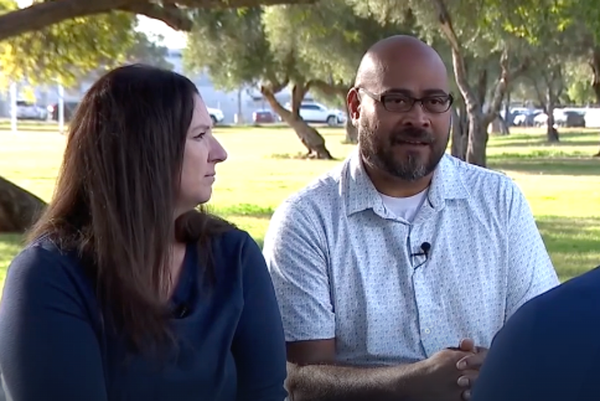Talented young athletes scouted by A-League academies are choosing football over education, leading to what has been described as an "unprecedented" and "unacceptable" situation and a call for Football Australia to intervene.
In a leaked letter sent to Football Australia boss James Johnson, the NSW Sports High School Association (SHSA) and player association Professional Footballers Australia (PFA) call for an urgent meeting to address "significant and ongoing concerns" involving more than 40 players, male and female, all required by their clubs to miss up to 50 per cent of class time to attend training sessions.
The letter, which has a NSW government Department of Education letterhead, has also been copied to the CEO of Australian Professional Leagues (APL), Danny Townsend, plus all state football federation bosses, among others.
"We are writing to you on behalf of the NSW Sports High School Association (SHSA) and Professional Footballers Australia (PFA), two organisations that are focused on supporting the elite youth development pathway for Australia's current and future footballers," the letter says.
"The SHSA and PFA have on a number of occasions brought to the attention of Football Australia (FA) and Australian Professional Leagues — our significant and ongoing concerns regarding A-League Academy school age players currently enrolled in seven member Sports High Schools — being required to miss school to train with their respective club academies.
"FA and the APL have to date, failed to act on the concerns raised or engage with us in good faith on the issues raised.
"In our view this state of affairs is unacceptable as the issues raised will continue to negatively impact the academic futures of these school age players and their families."
In NSW students can leave school if they are aged at least 17 years and six months at the end of the school year, however, approval must be given by the CEO of the Department of Education for a pupil to leave school before completing year 12.
Students have to show they are enrolled in a full-time approved education or training course, have an apprenticeship or traineeship, are employed in a job that will improve their job prospects, or any combination of those requirements for such approval to be granted.
Young footballers between the ages of 14 and 17 are being asked to attend up to four morning training sessions per week, impacting their arrival time at school, with some arriving just before the lunch break.
One student arrives late two days a week and leaves early on two others.
The matter is compounded when some of the students are called up for junior national team camps and international matches, resulting in them missing multiple full weeks of the school year.
"At best, as a direct consequence of the training commitments imposed by clubs, many students, some of whom have high academic potential prior [to] their recruitment into A-League academies and commitments with junior national teams — feel they have no choice but to dumb down their education and academic efforts in order to meet the barest minimum requirements for their school work commitments," the letter goes on to say.
"We have examples of students now choosing less challenging academic subjects as a result.
"At worst, some students are leaving school at the earliest opportunity without having completed the minimum formal educational requirements.
"This is surely not a sustainable position for the game."
Sports High Schools have worked with numerous high-performance sports, including football, to foster mostly positive relationships.
However, the SHSA says: "The situation we face with APL and Football Australia is unprecedented."
"Beyond the clear negative impacts on educational outcomes for the school age footballers, there are numerous examples of the distress being suffered by players and their families grappling [with] these competing priorities," it says.
As sports high schools continue to improve their own programs, they become a hunting ground for professional sports looking for future talent.
The Australian Olympic Committee has partnered with all seven NSW Sports High Schools, making them "official Olympic pathway schools".
Mixing high-performance sporting pursuits and education has always been a challenge and it is dealt with differently by each sport. NRL clubs, for instance, do not permit training sessions involving school students during school hours.
The SHSA and PFA want Football Australia and the Australian Professional Leagues to work together to address what they believe is a growing issue, especially when many young Australians who chase an elite sporting career will not reach the level they aspire to.
"One of the game's fundamental obligations is to protect and respect the rights of children involved in football," the SHSA and PFA state.
"We wholeheartedly support the dreams of all school age players who aspire to become professional footballers and their rights to participate in sport.
"We do, however, also believe that school-age players should not have to sacrifice their education to achieve their dream.
"The competing demands school-age players face — between academic achievement and sporting achievement — is not a binary choice.
"The game must always aim to support and encourage school-age players to achieve both sporting and academic excellence — and most importantly help provide the platform to do so."
An urgent meeting has been requested with the suggestion that an expert group be established to help create a national framework for school-age players at professional club academies.
Statistically, of the thousands who aspire to elite sporting success, few will make it.
At the very least, those who fail to reach their sporting ambitions will have their education to fall back on. It is a legal requirement from which sport is not exempt.
If you are unable to load the form, click here.







